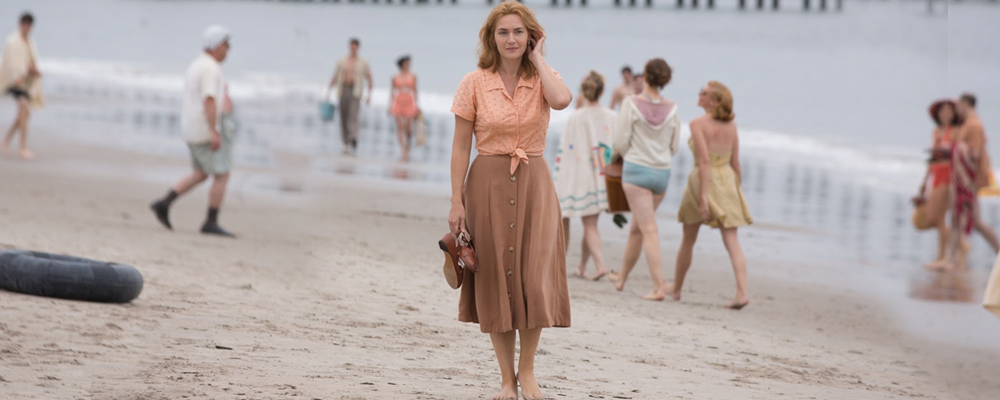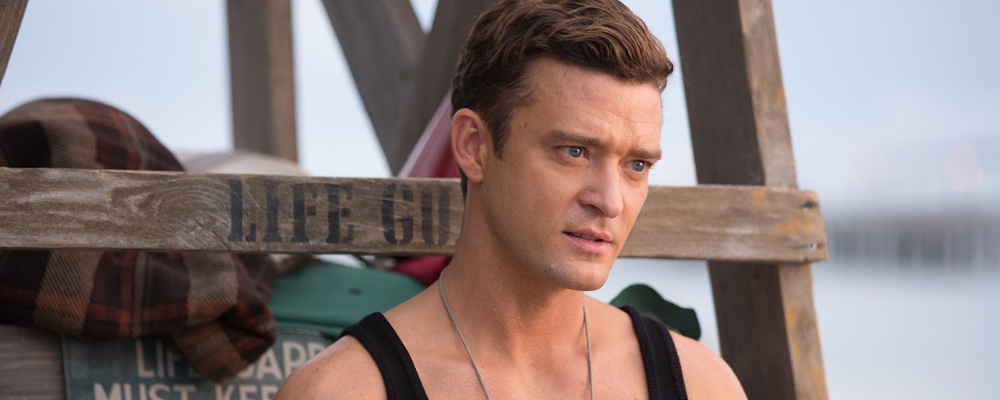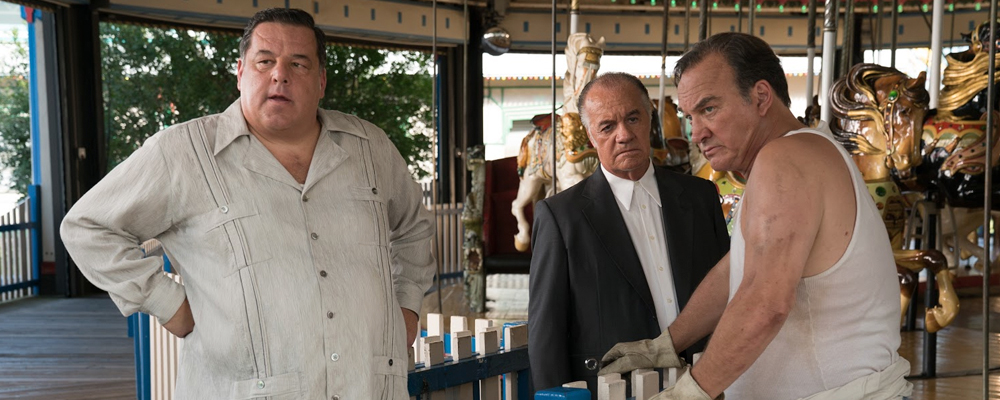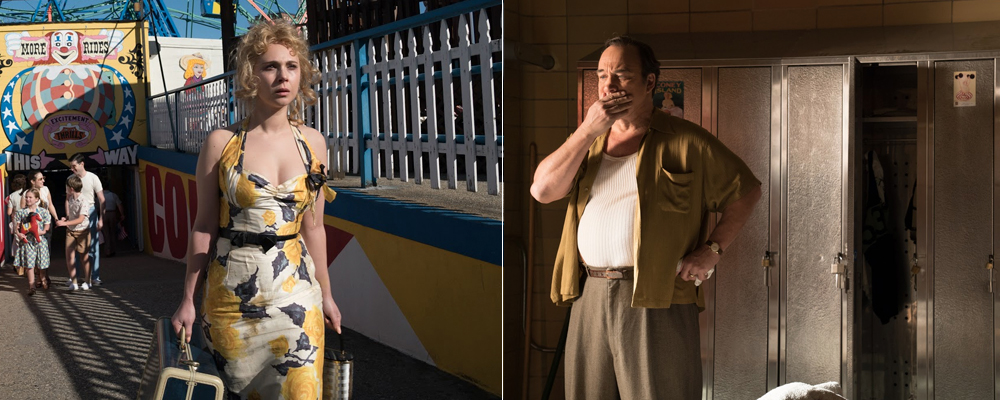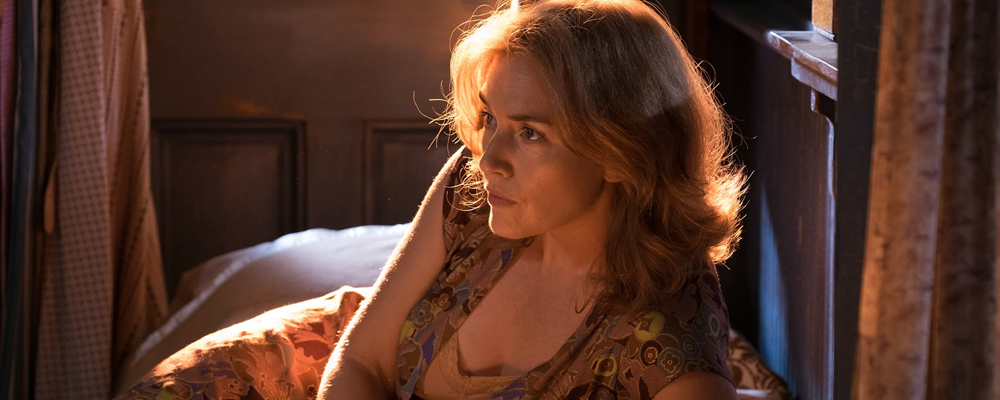Woody Allen’s ‘Wonder Wheel’ Spirals Into the Road of Blandness
Alci Rengifo
Like clockwork Woody Allen churns out a new movie nearly every year. Comfortable in his obsessions and formula, Allen’s constant delivery of work comes with a natural risk: It won’t always be good. Such is the fate of “Wonder Wheel,” yet another Allenesque take on affairs with age gaps, nostalgia for the recent American past, and writers in plight. But here the final product is a bland, repetitive, shallow film that never gives more than bare bones. There is surprisingly little wit or charm to get us through to the end, and we have to wonder if for Allen this was merely an exercise.
The movie takes place in Coney Island in the 1950s. At the local amusement park Humpty (Jim Belushi) operates the carousel while keeping his temper in check. Humpty is married to a former actress named Ginny (Kate Winslet), who came into the marriage with a troubled son named Richie (Jack Gore). Ginny has remained haunted by her previous, ruined marriage and her derailed career. She now waitresses at a local clam spot, frustrated at what could have been. At their door drops in Carolina (Juno Temple), Humpty’s grown daughter who ran off to marry a local mobster and is now hiding from him. Ginny soon meets a handsome lifeguard named Mickey (Justin Timberlake), who happens to be an aspiring playwright. A secret romance blossoms between the two and Ginny starts feeling good about life again. But happiness is fleeting because when Mickey happens to meet Carolina, feelings develop that will turn everyone’s world upside down.
“Wonder Wheel” is a collection of clichés we have seen Woody Allen work time and time again, especially in his recent work. The film begins with the all too familiar style of white credits on a black screen as an oldie plays on the soundtrack. Georgia Gibbs’ “Kiss of Fire” is once again a musical motif. Characters plug in classic books Allen seems to like, and the ambiance of the film is of a long-gone period in contemporary America. The style is a colorful daydream of the 1950s and in its sense of detail the film is noteworthy.
The look of the film can be quite sensuous, as it is photographed by the great Vittorio Storaro, who is legendary for his work in classics like “Apocalypse Now,” “The Last Emperor” and “Reds.” Storaro has laid low the last couple of years, working on some real lemons, and here he again applies his craft to an unworthy script. It is indeed curious to watch moments lit with such beauty, as Storaro even subtly shifts the entire color palette of a scene as characters converse, yet the words are forgettable. The film lacks the joy of “Midnight in Paris,” and the witty charm of “Magic in the Moonlight,” or even the dark intrigue of “Match Point.” Instead “Wonder Wheel” feels like a very bad play as characters simply pace around confined spaces, delivering their lines with a stilted tone. The conversations are never interesting because they feel calculated, like a bad dime novel (“You could’ve been something! He wasn’t even good looking!”).
Allen seems to be obsessed with the theme of couples with big age gaps. In “Wonder Wheel” Ginny is the older partner to Mickey’s young, fit paramour. But there’s no real chemistry between these two. Their passion is a bucket of cold water. There’s never a real sense of danger or depth. Timberlake delivers his lines with a deadpan, humorless tone that contradicts the very self-descriptions of the character (“I am a writer, so I overly romanticize everything”). He never develops into anything more than a convenient piece of arm candy for both Ginny and Carolina. None of these characters ever grow or become anything through the course of this movie. The explosive potential of the arrangement these people find themselves in never amounts to much and the drama seems to dissolve into thin air. Even the mob angle as Carolina’s ex-husband sends thugs to find her lacks any real suspense. Two tough guys in suits simply appear, ask questions and walk off as a convenient gimmick to add some sense of exterior danger. Events and actions just sort of happen in this movie.
The overall performances maintain the same note until the end. Humpty is a loud, brash alpha male. He smothers Carolina and ignores Ginny’s needs. Ginny is miserable for the entire thing and Carolina simply works as Mickey’s meet cute. By the end of the film Kate Winslet is quite literally reduced to just pacing around, looking for scotch and pills. The boiling jealousy resulting from Mickey falling for Carolina is never properly explored as drama. The most interesting character is probably Richie, who expresses his inner turmoil by committing childish, clumsy acts of arson.
Of course not all films need to be profound analysis of the human condition, but Allen fails to deliver at least an entertaining melodrama. Scenes develop like workshop exercises. Consider a scene where Mickey reveals a deep secret to Carolina over dinner. The moment should be full of intensity or melodramatic flare, instead she seems to take the news as calmly as a weather report. Nothing builds to a crescendo. The ending is so jarringly incomplete it feels like a book with its final chapter torn out.
“Wonder Wheel” boasts the name of a renowned filmmaker, but he is missing in its frames. Woody Allen makes films like clockwork, and they are starting to feel that way too.
“Wonder Wheel“ opens Dec. 1 in select theaters.

